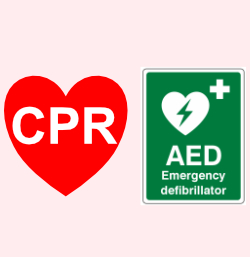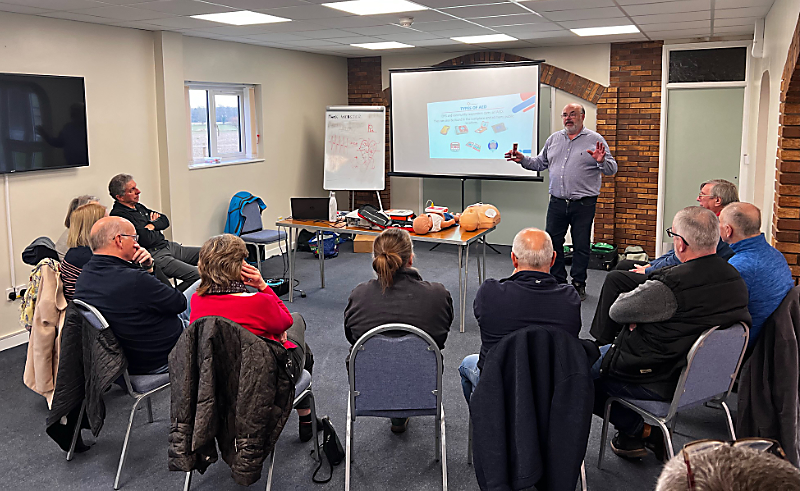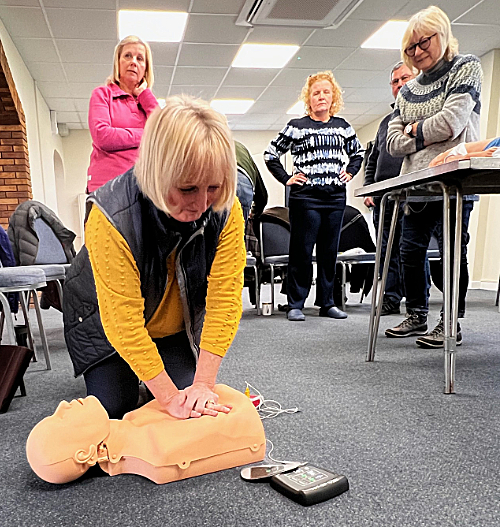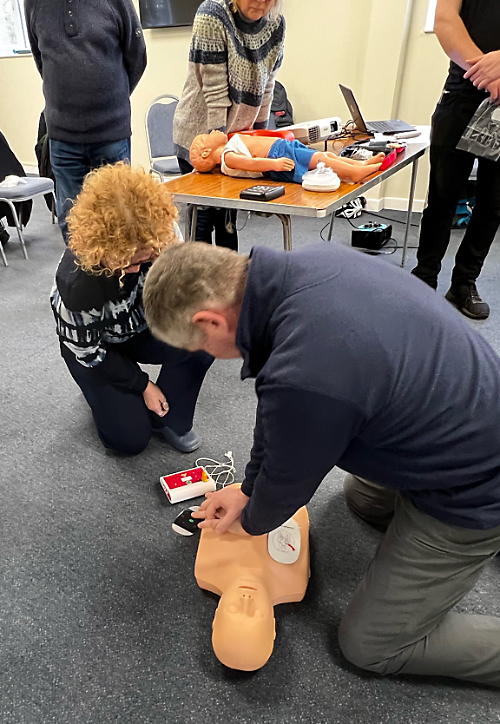
Residents from Banningham, Burgh and Tuttington gathered this weekend in Banningham Village Hall for the ever-popular Tri-Village RESUS Event. More than twenty eager participants listened carefully to the detailed and very clear instructions from ex-London paramedic Mark and went on to successfully resuscitate their dummy partners. Resuscitation not only involved CPR but a a range of defibrillators were shown and instruction provided on how to operate them.
Levity aside, the training sessions organised by Keith and David were a very valuable reminder about how we are all potential victims of a cardiac arrest. There are now twenty extra people in the three neighbouring villages who would know what to do if they were confronted with such an emergency.
In the sessions, Mark outlined what a cardiac arrest is and what can cause one. A cardiac arrest is when the heart stops beating in the regular way we are all used to and the beating becomes disorganised. This is called ventricular fibrillation (VF) and blood flow stops to essential organs, especially the brain and the heart itself. Mark said that without rapid action the patient would quickly deteriorate and die.

There are several things that can cause a cardiac arrest the most common being a heart attack in which an artery taking oxygen to the heart muscle becomes blocked by a blood clot. Heart attacks of this type generally occur in adults, especially older adults. But, cardiac arrest can occur in younger people too. We might have heard about footballers suffering cardiac arrest likely caused by disturbances to the electrical signals controlling the regular beating of the heart. Drowning is another possible cause.
Whatever the cause of a cardiac arrest, we must act and act quickly if we are with someone who suffers one. The first thing to do is call for help. You or someone with you should phone 999 immediately to get the Emergency services on the move to help you. Meanwhile, CPR should be started right away to keep blood flowing to vital organs like brain and heart. This is where a defibrillator can play an essential part if one is nearby.
Thankfully, we now have a defib machine in Tuttington accessible 24/7 in the church porch. To use it, phone the emergency services (999) and tell them you are at Tuttington church and they will give you the code number to access the defib machine. They will stay on the line and guide you through the whole process. Basically, you apply the pads (instructions provided) and stand back. The machine does everything for you. It analyses the patient’s heartbeat and decides whether a shock is needed or not. The machine applies the necessary shock itself. Bystanders must not touch the patient during the shock process. The machine will tell you to do more CPR and will again tell you if it needs to shock the patient a second time. Again, stand back. The emergency services will take over when they arrive. Don’t panic!

There are defibrillator machines available 24/7 in Tuttington (church porch), Banningham (the Crown pub), Skeyton (old phone box at crossroads near to the village hall), and Burgh-next-Aylsham (Reading Room next to the church). This local network is an important part of the first line of defence against cardiac arrest. The more defib machines there are, the closer residents will be to one. Perhaps Tuttington should consider getting a second machine for the Aylsham end of the village.
One of the most important parts of the training session is having the ability to ask an expert some questions. Many of us don’t like to think about these matters of life or death but as with many things, the more you know the better prepared you will be to help a family member, friend or neighbour. For those of you who would like to attend a future session, there will no doubt be another in due course as advertised on the Tuttington Hub and elsewhere. So if you get the chance, go to a CPR and defib instruction session even if you’ve been to one before. It could help save a life!
